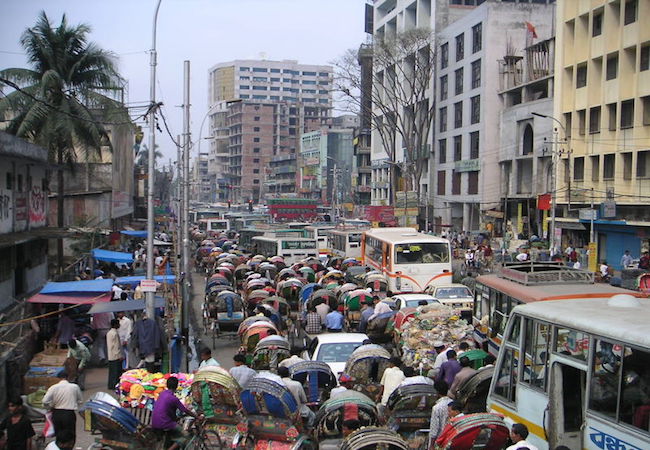
By Tahseen Ali
Khaleda Zia, a former prime minister of Bangladesh and head of the opposition Bangladesh Nationalist Party (BNP), was recently convicted on charges of corruption and sentenced to five years in prison.
The BNP and, regrettably, some Western voices, are criticizing the verdict as political. The evidence in the case proved otherwise. Zia’s status as the leader of a Bangladesh political party is coincidental to the case. As Bangladesh’s Law Minister Anisul Huq said, the outcome of the trial shows that no one in Bangladesh is above the law.
Zia was convicted of misappropriating more than $250,000 that was intended for the welfare of orphans. Zia used the funds for personal gain. Perhaps the most damaging evidence was the failure of anybody to find the actual orphanage that Zia claimed to aid.
In the meantime, Zia and her BNP supporters are trying to use a party flag to cover wrongdoings.
This was the case in the run-up to the 2014 Bangladesh general elections. BNP candidates found themselves trailing in opinion polls. Having failed to win over Bangladeshi voters, the BNP tried to disrupt and delegitimize the election by boycotting it. The BNP and its affiliates organized nationwide strikes and a campaign of outright terror and violence, which claimed 230 lives and injured 1,200. The BNP deliberately targeted innocent people going about their daily lives, even rickshaw-pullers.
When law enforcement officials arrested and tried the wrongdoers, BNP officials complained that they were being persecuted because of their party affiliation. Only naïve outsiders and committed opponents of the government bought that line.
In the most recent court case, the charges on which Zia was convicted were filed in 2008 by the Anti-Corruption Commission of Bangladesh under a non-party interim caretaker government. The current government, which the BNP opposes, had nothing to do with bringing those charges.
Zia faces five additional corruption cases related to her time as prime minister, all filed by the interim caretaker government. For five consecutive years during Zia’s second term as prime minister, from 2001 to 2006, Bangladesh was ranked as the world’s most corrupt country by Transparency International’s annual index.
Either Zia or current Prime Minister Sheikh Hasina has been Bangladesh’s head of government since 1991. Zia served two terms. Sheikh Hasina is on her third term. Non-party caretaker governments served in between. Western media outlets have popularized a narrative of the “battling begums;” begum is Bengali for a female royal. Aside from being condescending, sexist and neo-colonial, this lazy storyline has established a false equivalency between the two prime ministers and allowed many outside of Bangladesh to write off Zia’s corruption and mishandling of the Bangladesh government as nothing more than one side of an ongoing feud.
This is wrong. During Zia’s rule, Bangladesh foundered. Since Hasina began her second term in office in 2009, the country’s Gross Domestic Product has grown at a nearly 7 percent annual clip. Exports have boomed, poverty has fallen, life expectancy has risen, rural areas have been electrified, more women have entered public and professional life and girls now outnumber boys in the nation’s schools.
Perhaps this is why the BNP believes that the only tools it has left are violence, public agitation and false claims of political persecution. In response to the Zia verdict, the BNP and its allies have staged riots and other public disruptions.
Because of her jailing, Zia may not be able to run for office in the nation’s general elections in December. The BNP leadership has been handed to her eldest son, Tarique Rahman. He follows in his mother’s footsteps more than just politically. Rahman received a 10-year sentence for his involvement in the phony-orphanage scam. In 2016, Rahman was convicted of money laundering. In both cases, he was tried in absentia. He fled to London in 2008 to escape charges that he was involved in a 2004 assassination attempt on Prime Minister Hasina that she survived. Twenty-four others did not.
The BNP’s claim of political persecution rings hollow. Khaleda Zia was fairly tried and convicted on the evidence. No one in Bangladesh is above the law.
Tahseen Ali holds a PhD specializing in South Asian and British imperial history.




